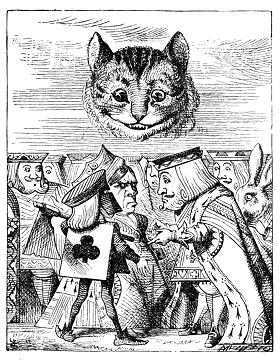
Courtesy of wikipedia.org
I was grateful to my neighbor for helping me with a technical problem. He’s the resident guru on computers at the retirement center and far too modest about himself. Aware that I might need his advice in the future, I asked if he’d care to adopt me despite my advanced age. A smile parted his lips as his gaze dropped to the carpet. “We’re all family here,” he said.
I walked away thinking he’d uttered a beautiful notion, though I tend to reject sentiments that are warm and fuzzy. I’m old enough to know that the history of “the “family of man” is dysfunctional. Since Cain slew Abel we’ve worked to perfect the art of violence.
Murder isn’t the kind of glue to hold society together, so we attempt to contain it by inventing rules. Murder on a grand scale we call war. The rules on those occasions are those of The Geneva Convention. The smaller stuff we leave to religion, laws, politics, and the whims of tyranny. But, like the potter who leaves his fingerprints upon newly shaped clay, because we are flawed creatures, the systems we create can be weaponized and used to threaten others. Justice, after all, is the gloved fist of vengeance.
Bill Clinton, our 42nd President, sees philanthropy as a better way to promote social cohesion. Philanthropy can help bust through political and cultural gridlock by showing what can be done. He has many true believers, so many that at his last conference on philanthropy, a thousand do-gooders had to be turned away.
Enthusiasm on this scale is heartwarming, but I’m a curmudgeon. I’ve never been keen to turn the world over to philanthropists. Who are they, after all, but people otherwise known as oligarchs? Nick Caraway in The Great Gatsby told us about them. They are people who don’t think like the rest of us. I doubt any butcher, baker, cowboy, or tailor would choose to live in a Martian colony under Elan Musk’s rules.
I place my faith in “we the people.” Democracy’s collective mind is where we are most likely to find common ground.
Alexei Navalny, Vladamir Putin’s murdered opponent, was a man of the people. Having survived attempts to assassinate him, he warned his followers their fate didn’t depend upon his survival but upon their will. If it happens, if they decide to kill me, it means we are incredibly strong. We need to use that power. (“A Hero of Our Time,” by Mariam Elder, Vanity Fair, April 2024, pg. 34.)
His words may seem like a whistle against the dark, but the Ukrainian people are a living example of that courage. Their David and Goliath story can set this curmudgeon’s heart to racing. Even so, dreams can become fodder for blind ambition.
Our Republican House has placed a chokehold on future aid to that country, reversing their past support. They did it to placate their revenge candidate, Donald Trump, in the upcoming presidential election. Trump holds a grudge against Ukraine and is happy to curry the favor of their invader, Vladimir Putin. If elected, our former president promises to leave Ukraine to the Russians.
The predatory world in which we live is Nature’s doing, but humans have wasted no time in making a hell out of the heaven they inherited. Some attempt to escape the violence by turning to drugs or alcohol. Others rely on religion, mysticism, or conspiracy theories for the dopamine high that makes them happy.
Artificial Intelligence (AI) and augmented virtual reality could provide other avenues of escape. Their illusions might help us create worlds so satisfying, that many won’t return to planet Earth. For proof of that possibility, observe how people are mesmerized by their smartphones.
We humans aren’t algorithms, however. Wherever we go, we drag our dark side behind us like a beloved toy. That’s a drawback to consider as we cheer the coming of augmented reality.
Despite the challenges ahead, like Navalny, I have hope because….well, what else is there? Fraternity, equality, and liberty are pretty good ideas. To obtain them all we have to do is curb our tribal nature, though some have argued it doesn’t exist.
Whether Instinctive or learned, history confirms that group-think seems natural to us. We desire to be among people who look like us and share our values. That passion for conformity rivals our growing need to respect diversity and sometimes makes democracy seem like a fool’s dream.
Given my doubts about the future of mankind, I left the caring gentleman at the retirement center with one request. “please don’t include me as a member of the community. I prefer to be the resident alley cat.”
